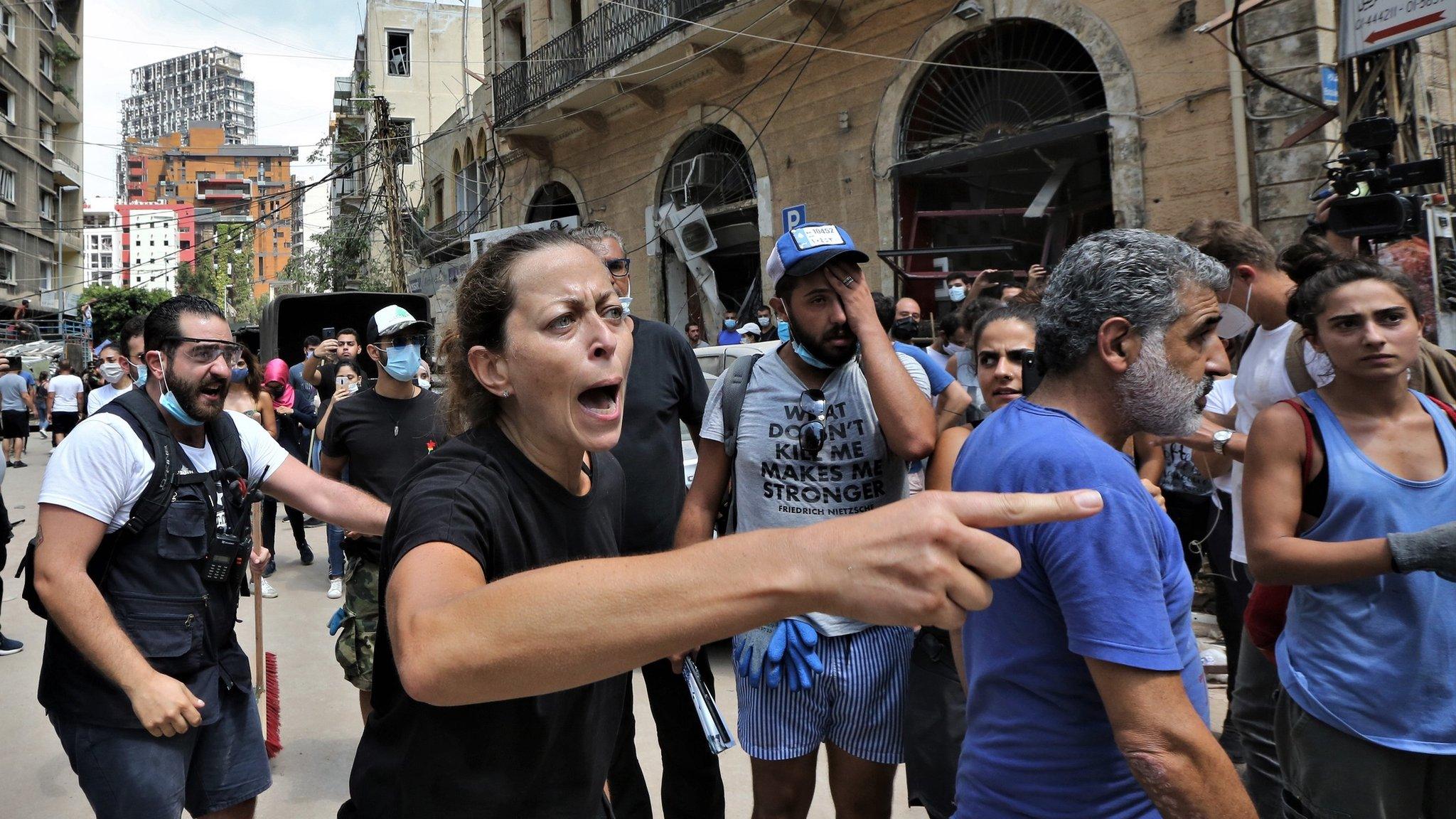Beirut explosion: City holds vigil to mourn blast victims
- Published
Crowds in Beirut hold a minute of silence, exactly one week after a huge blast in the port area of the city
People in Beirut have attended a vigil for the more than 200 victims of the huge explosion that devastated the Lebanese capital a week ago.
A crowd stood in silence near the ruins of the city's port as a Muslim call to prayer was broadcast and church bells tolled at 18:08 (15:08 GMT).
That was the exact time when 2,750 tonnes of ammonium nitrate stored unsafely in a port warehouse detonated.
There has been outrage that so much hazardous material was kept there.
The Lebanese government's resignation on Monday failed to pacify protesters, who clashed with police in central Beirut for a third consecutive night.
Starting with the epicentre, we follow how the 4 August blast ripped through the city, bringing life to a halt
Lebanon was already struggling with an unprecedented economic crisis before the disaster, with families pushed into poverty and hunger.
Since October, protesters have been demanding the complete overhaul of the political system, which they blame for government corruption and mismanagement.
The BBC's Quentin Sommerville speaks to the fiancé of Sahar Fares, a firefighter medic who died in the blast
Prime Minister Hassan Diab, a university professor who took office in January with the support of the Iran-backed Hezbollah movement and its allies following the resignation of the previous government, announced his cabinet's resignation in a televised address on Monday night.
He avoided taking responsibility for last week's blast, blaming it on the entrenched political elite.
"Their corruption created this tragedy," he said. "Between us and change stands a thick wall protected by their dirty tactics."
Mr Diab said that his caretaker administration would "follow the will of the people in their demand to hold accountable those responsible for the disaster".
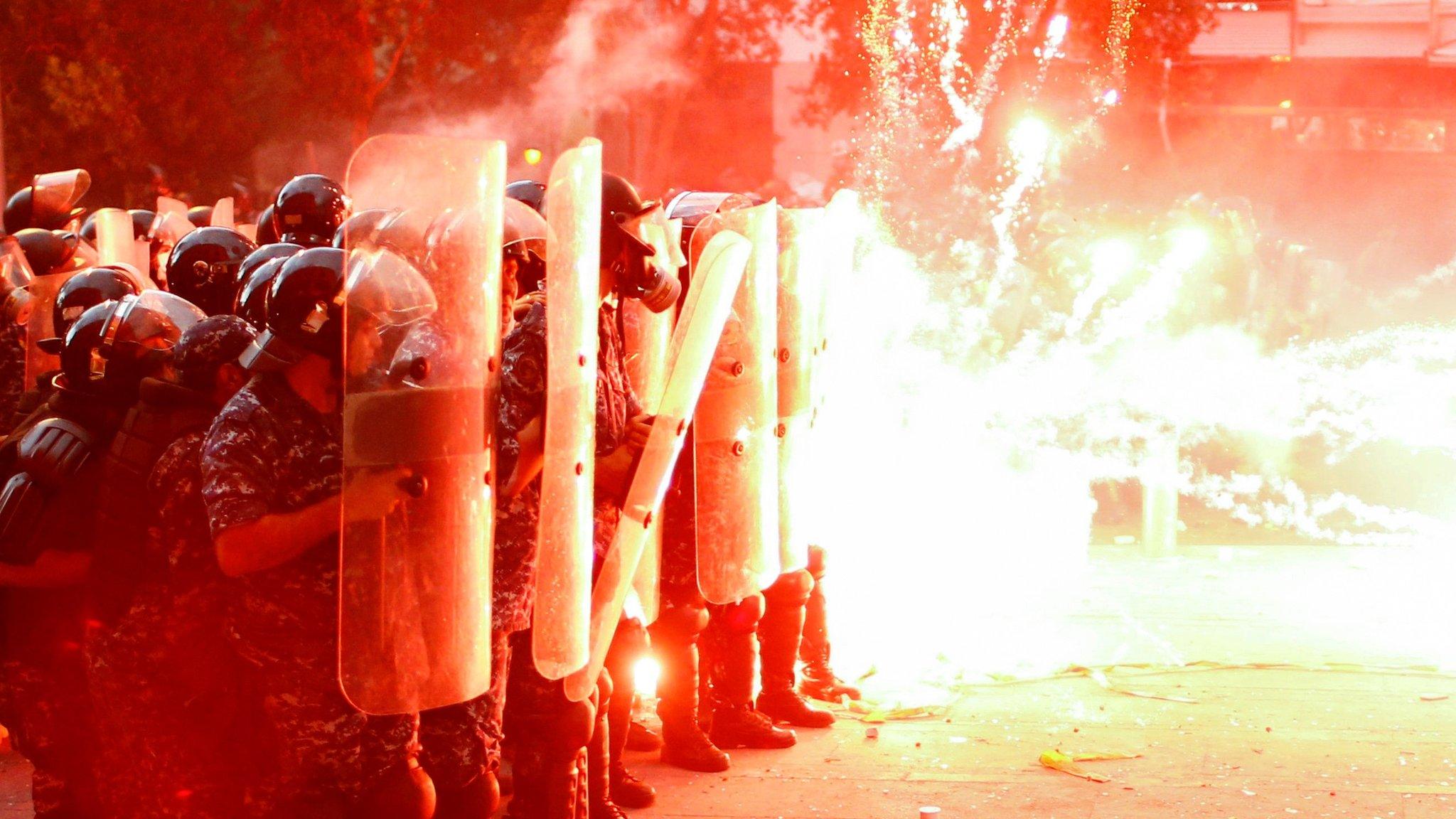
Anti-government protesters launched fireworks at riot police
The BBC's Tom Bateman in Beirut says it is unlikely the mass resignation of the government will remove much heat from the protests, as Lebanon's problems are only deepening.
A new prime minister will have to be chosen using the same system of sectarian politics at the root of many people's complaints, our correspondent adds.

More on the explosion in Beirut

Meanwhile, the recovery operation is continuing on the ground in Beirut.
The UN said on Tuesday that the World Food Programme would be sending 50,000 tonnes of wheat flour to Beirut to "stabilise the national supply and ensure there is no food shortage in the country", with 17,500 tonnes arriving within two weeks, external.
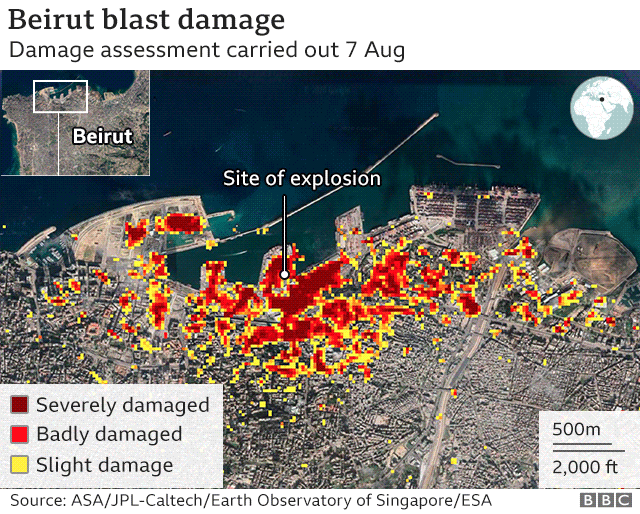

The head of the agency, David Beasley, warned on Monday that he was very concerned that Lebanon could run out of bread in about two-and-a-half weeks because 85% of the country's grain was usually delivered through Beirut's port.
Mr Beasley said it was urgent to get the port up and running, and that he believed it could be temporarily operational in two to three weeks.
A port official noted that the container terminal suffered "minimal damage", external and that on Monday night a ship docked there for the first time since the explosion.
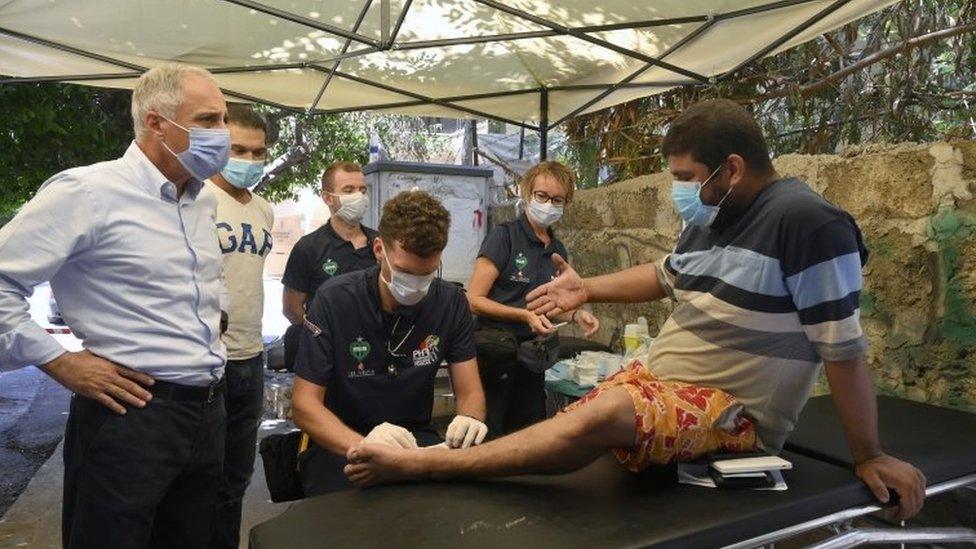
Makeshift clinics have been set up to help treat the 6,000 injured by the explosion
At least 15 medical facilities, including three major hospitals, also sustained partial or heavy structural damage last Tuesday.
The UN has called for additional support to ensure those still functioning can continue to treat the estimated 6,000 people injured by the blast, and also manage the ongoing coronavirus pandemic.
On Sunday, a total of 294 new Covid-19 cases were recorded, a new record for Lebanon.
"The emergency in Beirut has caused many Covid-19 precautionary measures to be relaxed, raising the prospects of even higher transmission rates and a large caseload in the coming weeks," the UN said.
- Published5 August 2020
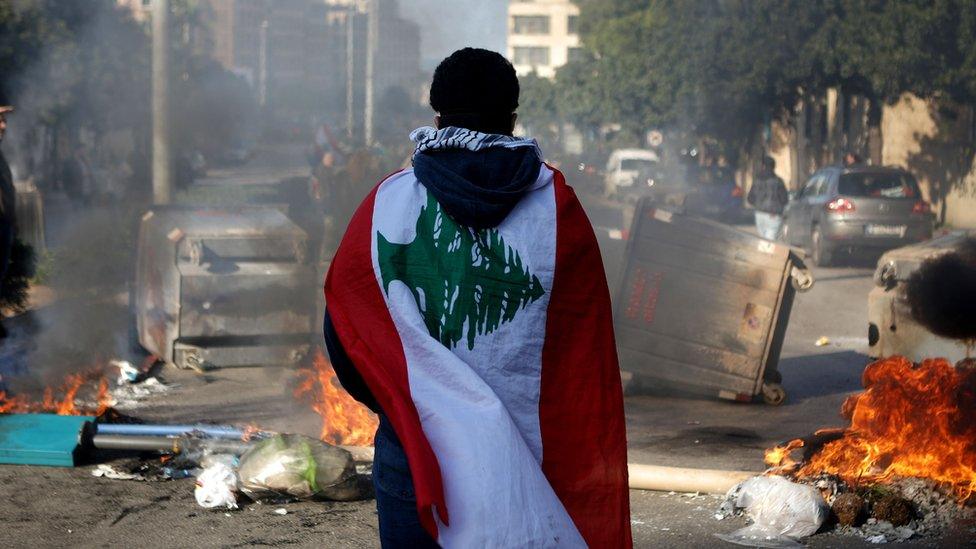
- Published11 August 2020
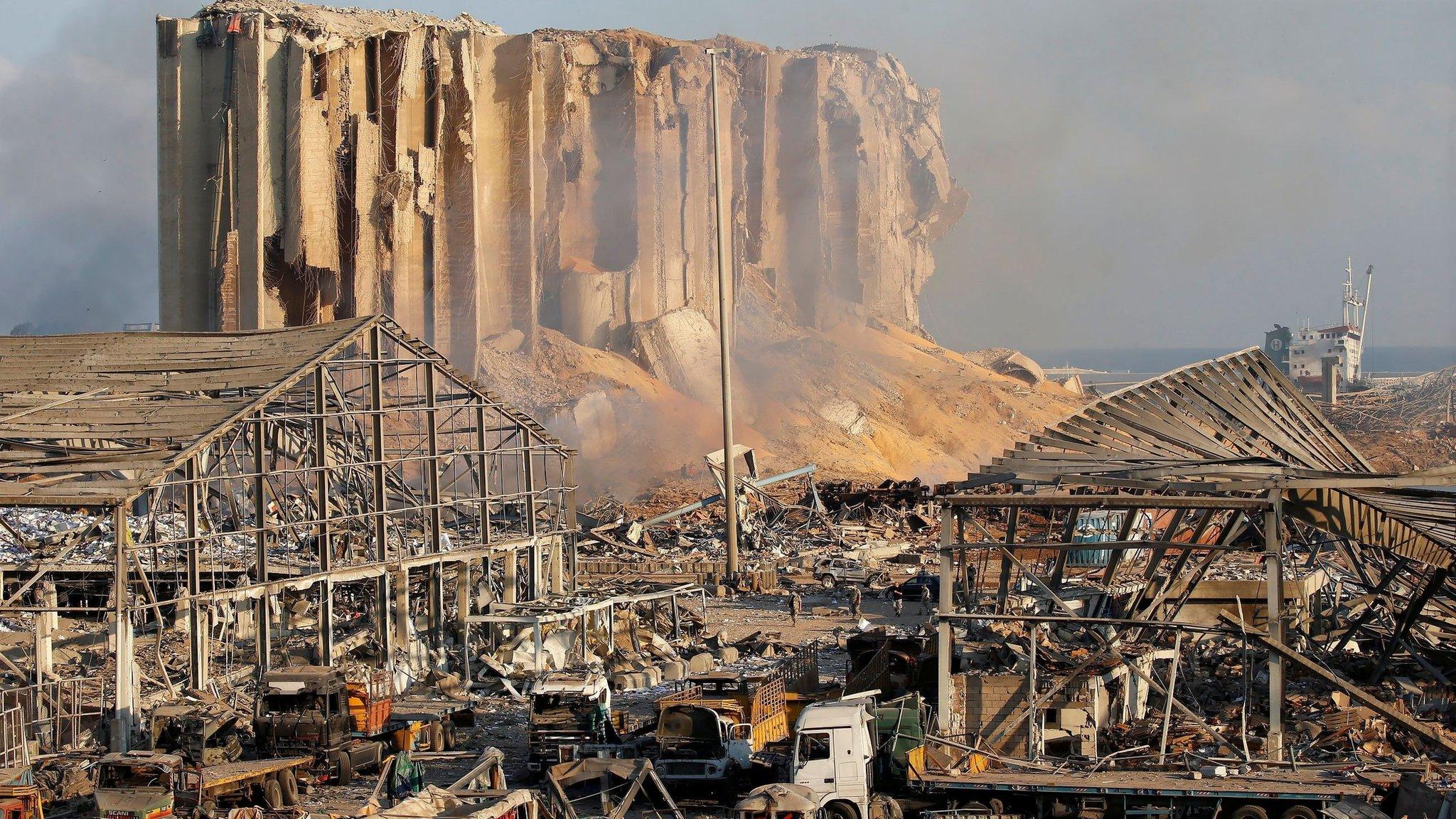
- Published7 August 2020
